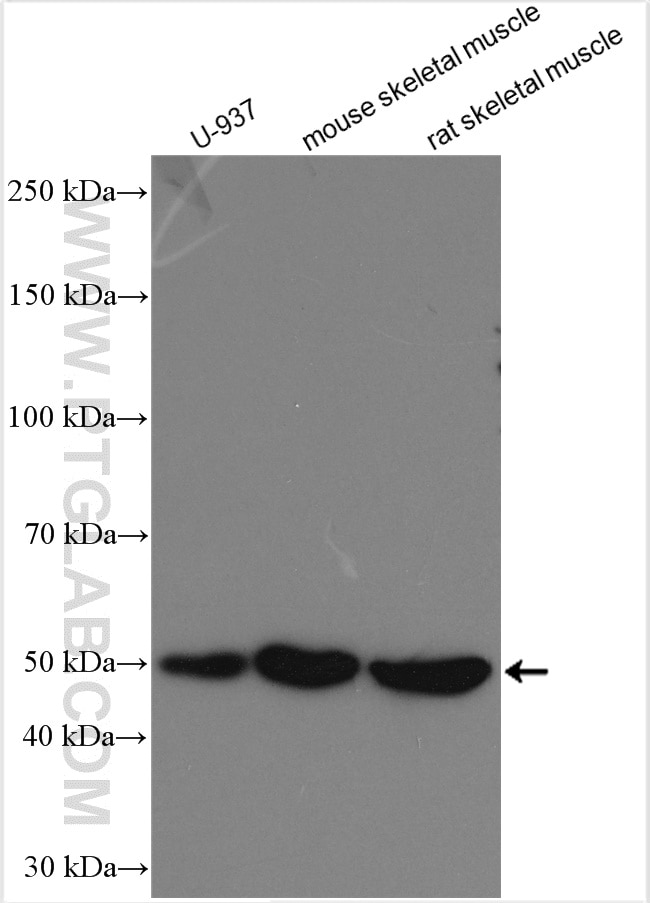DPP7 Polyclonal antibody
DPP7 Polyclonal Antibody for WB, ELISA
Host / Isotype
Rabbit / IgG
Reactivity
human, mouse, rat
Applications
WB, ELISA
Conjugate
Unconjugated
Cat no : 19018-1-AP
Synonyms
Validation Data Gallery
Tested Applications
| Positive WB detected in | U-937 cells, mouse skeletal muscle tissue, rat skeletal muscle tissue |
Recommended dilution
| Application | Dilution |
|---|---|
| Western Blot (WB) | WB : 1:500-1:2000 |
| It is recommended that this reagent should be titrated in each testing system to obtain optimal results. | |
| Sample-dependent, Check data in validation data gallery. | |
Published Applications
| WB | See 1 publications below |
Product Information
The immunogen of 19018-1-AP is DPP7 Fusion Protein expressed in E. coli.
| Tested Reactivity | human, mouse, rat |
| Cited Reactivity | human |
| Host / Isotype | Rabbit / IgG |
| Class | Polyclonal |
| Type | Antibody |
| Immunogen | DPP7 fusion protein Ag13556 |
| Full Name | dipeptidyl-peptidase 7 |
| Calculated Molecular Weight | 54 kDa |
| Observed Molecular Weight | 54 kDa |
| GenBank Accession Number | BC016961 |
| Gene Symbol | DPP7 |
| Gene ID (NCBI) | 29952 |
| RRID | AB_10641993 |
| Conjugate | Unconjugated |
| Form | Liquid |
| Purification Method | Antigen affinity purification |
| Storage Buffer | PBS with 0.02% sodium azide and 50% glycerol pH 7.3. |
| Storage Conditions | Store at -20°C. Stable for one year after shipment. Aliquoting is unnecessary for -20oC storage. 20ul sizes contain 0.1% BSA. |
Background Information
DPP7 (also known as DPP-II and quiescent cell proline dipeptidase, QPP), is the first reported protease that contains a leucine zipper motif through which the functional homodimer has been predicted to be formed (PMID: 22952628). DPP7 can be detected as 54 kDa (full length) and ~50 kDa (signal peptide cleaved).
Protocols
| Product Specific Protocols | |
|---|---|
| WB protocol for DPP7 antibody 19018-1-AP | Download protocol |
| Standard Protocols | |
|---|---|
| Click here to view our Standard Protocols |
Publications
| Species | Application | Title |
|---|---|---|
Cancer Med Melflufen, a peptide-conjugated alkylator, is an efficient anti-neo-plastic drug in breast cancer cell lines. |


